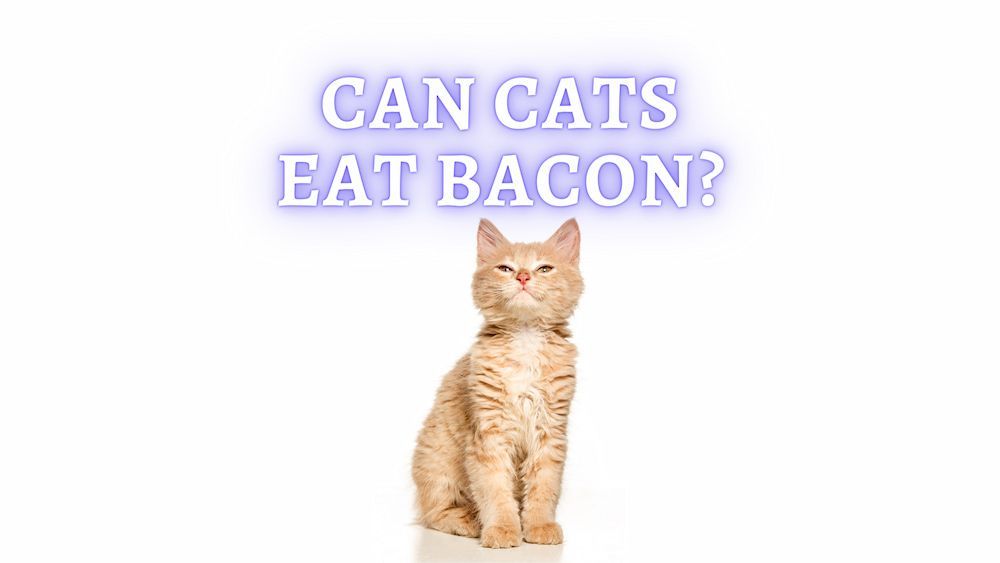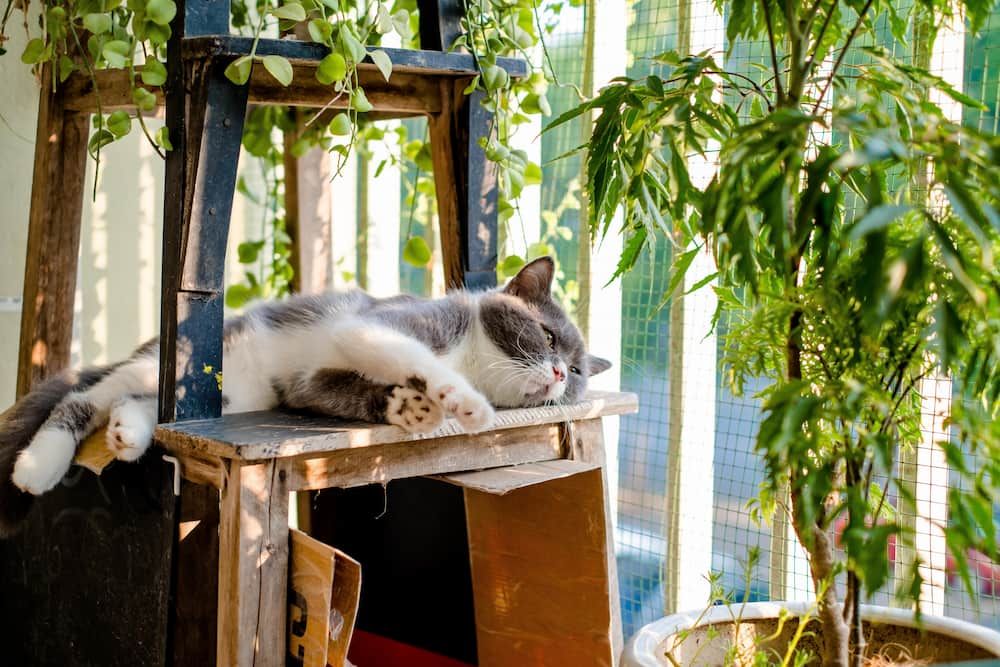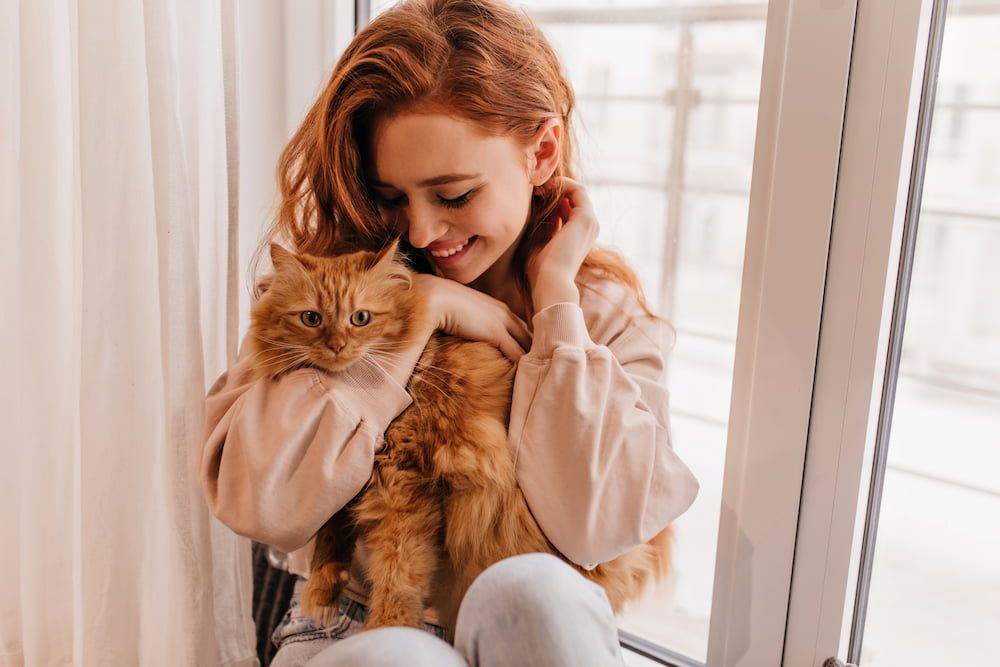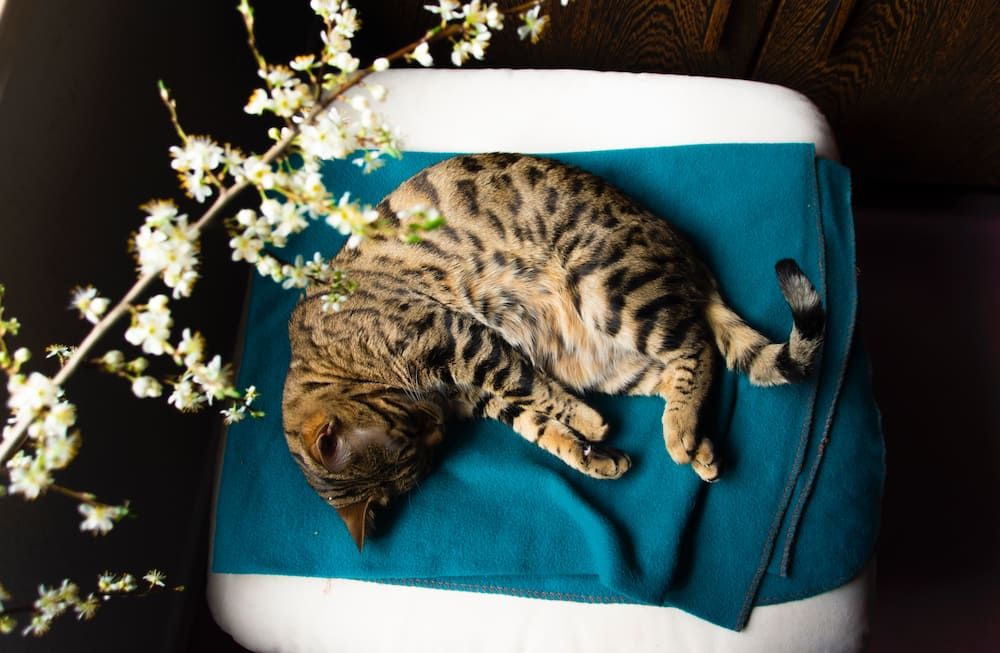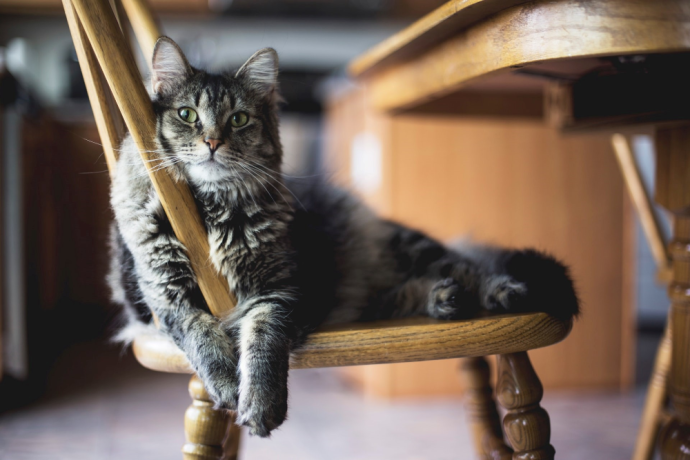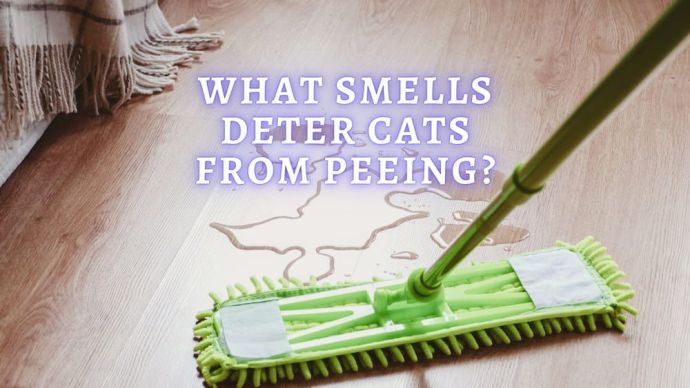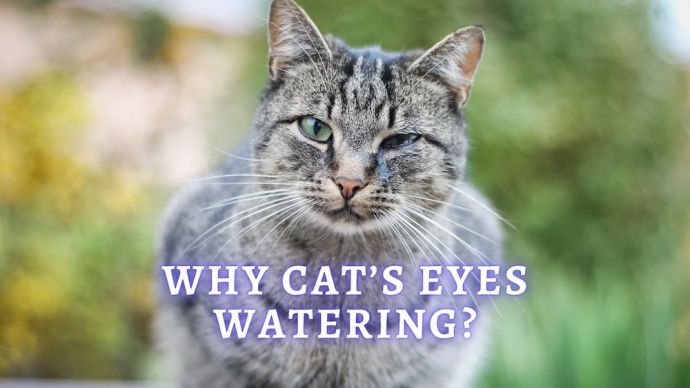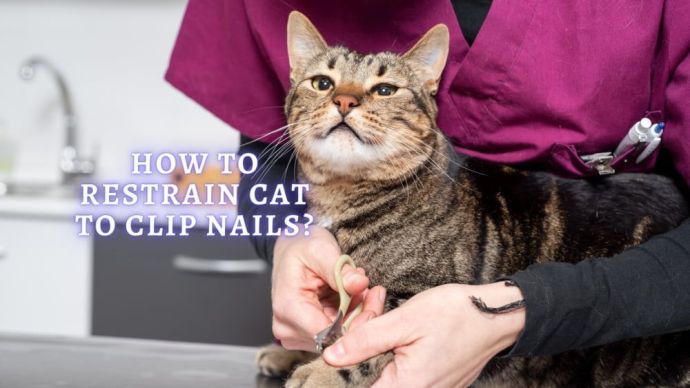Can Cats Eat Bacon? What Happens if Cat Eat Bacon? (Vet Advice)
Written by:
Author: Carol Young
Carol has worked in specialty, emergency, mixed animal and general veterinary practices, and enjoys all aspects of veterinary medicine. Her special areas of interest include anesthesia, critical care, emergency, dentistry, internal medicine and small animal nutrition.
View all 62 articlesLearn about our editorial process and veterinary review board.
Viewed: 315
Updated on: 05/13/2022
Cats are true carnivores, and they need animal protein as a part of their regular diet. Several nutrients are essential for cats and are only found in meats: Vitamin B12, vitamin A, taurine, and arachidonic acid. If cats are carnivores, you might think that offering your feline friend a taste or two of bacon would be beneficial. However, there are some things you should know first before sharing a taste of crispy bacon with your kitty.
The Basics About Bacon
Bacon has been a popular ingredient in many human dishes, and before we explore the question of can cats eat it, let’s take a closer look at what bacon is and its nutritive properties. Bacon comes from pork, and like other forms of pork, such as ham, it is loaded with salt and is high in saturated fats. This is perhaps why it is so tasty. If you find yourself cooking up some bacon for your breakfast, you’ll probably notice that your kitty comes running, enticed by the smells of long-chain fatty acids and animal proteins wafting through the kitchen.
One strip of bacon typically consists of over 20% total fat, 300 mg sodium (almost ten times daily recommended intake for cats), 12 grams of protein, and is packed with up to 80 calories. The recommended calorie intact for the average feline is 25-25 calories per pound. For a 10lb feline, daily caloric intake would be 250-350 calories. One strip of bacon would be 1/4 of a cat’s daily allowance. Although most owners would not probably offer their kitty a whole strip of bacon, it is important to know that it is high in salt and fat, and because of this, it’s best to offer your cat only small and modest portions.
Is It Safe for Cats?
Although cats can eat bacon, you may wonder if it’s safe for them. Given that it is high in sodium, fat, and calories, too much can be detrimental to your kitty. Eating too much bacon can cause obesity and elevations in blood sodium in cats, and the high-fat content can contribute to metabolic conditions such as diabetes. Since kitties spend a lot of their time sleeping and are not as active as other mammals, it is important to keep in mind that bacon’s high fat and caloric content may contribute to weight gain.
Bacon is perfectly safe for cats as long as the servings are small and infrequent and if the cat does not have any underlying medical conditions such as irritable bowel syndrome (IBS), diabetes, or obesity. If you have any questions, consult your veterinarian, and think about sticking with high-quality cat food.
Are There any Health Benefits of Ham, Pork, and Bacon?
There are some health benefits of ham, pork, and bacon, and these consist of animal proteins, which are essential for cats. However, pork is typically not as fatty or salty as ham or bacon and can be a healthy, low-fat treat for your feline friend if it contains no salt, herbs, spices, or additives. Your cat may enjoy a taste of your plain, baked pork chop, but you may want to keep the ham and bacon treats to a minimum.
Bite-sized and properly cooked bacon or ham can be a nice treat for your kitty, but there are no real health benefits of these tasty tidbits. Since excess quantities of bacon are not recommended due to the high fat and salt content, offering your cat large amounts may result in high blood pressure, obesity, and elevated sodium levels. It’s best if you stick to offering your kitty treats specially formulated for cats and limit offering ham, pork, and bacon to once in a while.
Is Bacon Bad For Cats?
Bacon is not necessarily bad for cats; it may be best to refrain from offering your kitty bacon if possible. Although your cat may love the smell and taste of bacon, the elevated volume of fat, salt, and grease is not healthy for your feline friend. Just as eating too much bacon is not recommended for people, the same goes for cats too, and excess consumption can cause obesity, high blood pressure, and even dehydration. In addition, the saturated fats in bacon can contribute to elevated serum fat levels in the blood, high cholesterol, and clogged blood vessels.
READ MORE: How to Deal With Cat Picky Eater?
Can Cats Eat Ham?
Another pork product, ham, is a popular main course during the holidays and features prominently in deli sandwiches and other dishes. Although ham can make for a delicious treat, it does contain quite a bit of salt. The reason that ham is high in sodium is that salt is used to cure and flavor the meat, and as a result, a 3-ounce serving of ham contains about 1000 mg of sodium, over ten times the recommended daily allowance for salt in cats.
Since cats are often lured by the smell of meat and animal fats, your kitty would probably come begging for a taste of your ham sandwich. Offering your kitty a tiny morsel of ham is not necessarily harmful, but it is best to keep such treats to a minimum and make sure that the ham is free of seasonings, fat trimmings, and any additives. If your kitty demands to have a nibble of your deli meat, try distracting him with a cat treat or a less salty snack.
Can Cats Eat Bacon?
The short answer to this is yes; they can eat bacon. The real question is, should they? Since it is high in salt and saturated fats, most veterinarians recommend not to feed your cat bacon at all. The high salt content can cause gastrointestinal (GI) upset, vomiting, diarrhea, and other stomach complications. It’s always best to not feed your cat more than a small nibble of bacon, and only occasionally.
Should Cats Eat Bacon?
The answer to this question is a firm no, but it’s not necessarily bad to offer your kitty a small morsel of bacon once in a while. It is full of sodium, fat and high in calories. The main concern here is the high salt content of bacon, leading to dehydration, high blood pressure, and even seizures in your cat.
Can Cats Eat Pork?
Lean cuts of pork that do not contain additives, seasonings, or added salt can be a healthy snack for both you and your cat. Pork is nutritious and contains 9 essential amino acids, the building blocks of protein. Pork is also rich in vitamins and minerals such as zinc, iron, thiamine, vitamin B6, vitamin B12, niacin, and phosphorus. B6 is especially nutritious as it plays a supportive role in the brain, heart, and nervous system.
Pork can be good for felines as it contains taurine, which is needed for healthy muscle growth and function. However, some cats may not like pork and may prefer fish or chicken. If your kitty begs for a taste of your pork chop, make sure that you offer only a small nibble and that the pork does not contain any additives, seasonings, or sauces. Also, make sure that the pork is fully cooked, as raw pork can cause food poisoning and contain salmonella.
READ MORE: Kitten Development Stages
Can Cats Eat Turkey Bacon?
Turkey bacon has been advertised as a healthier alternative to bacon, but like other types, it does contain a lot of salt and added preservatives required in the curing process. The additives and salt can be harmful to your cat, especially if your cat suffers from GI issues or has an underlying medical condition.
Can Cats Eat Bacon Bits?
Bacon bits are a popular seasoning for salads; however, many products are not made from it at all, and those bits that do contain bacon have an extremely high salt content. Another concern with bacon bits is that they are highly processed and contain ingredients that can harm your cat. Such ingredients include potassium nitrate or sodium nitrate and other chemicals, which can cause GI upset and high blood pressure.
Can Cats Eat Raw Bacon?
Eating raw pork products is not recommended, even for humans, as pork needs to be cooked thoroughly to avoid parasites, possible bacterial infections, or food poisoning. Just as with humans, animals are susceptible to the hazards of eating raw meat. If you have any questions about offering your cat raw bacon, consult your veterinarian first.
What Happens if Your Cat Eats a Lot of Bacon?
If your kitty decides to overdo it and decides to “pig out” on several pieces of your breakfast bacon, your feline buddy might vomit or possibly suffer from other GI signs such as bloating or diarrhea. The main concern is the amount of sodium and fat, and make sure to monitor your cat for any signs of distress. If you are worried, contact your veterinarian. Your veterinarian can offer suggestions and may want to admit your cat for observation if needed.
READ MORE: Best Cat Probiotics (Vet Approved)
Alternative Healthy Snacks
Although bacon can make for a tasty treat, it’s probably best to offer your cat healthier alternatives that do not contain high amounts of sodium or fat. The good news is that there are plenty of healthy alternatives to bacon, and these include:
- Specially formulated cat treats. They come in a variety of flavors, shapes, and sizes.
- Tuna fish. Try offering a bit of canned tuna that does not contain extra additives or salt.
- Cooked, plain salmon. Most cats are fond of fish, and a nibble of plain cooked salmon can provide a tasty treat.
- Vegetables. Although cats are carnivores, you may notice that your feline friend may be fond of certain vegetables, such as broccoli or lettuce. These treats can offer a bit of fiber that can benefit the GI tract.
FAQs
What happens if cats eat bacon?
If your cat has eaten some bacon, there is no cause for alarm if the amount ingested was only a small amount. However, keep an eye out for signs of GI distress, such as vomiting or diarrhea. If you are concerned, contact your veterinarian.
Can a cat eat cooked bacon?
The short answer to this is “yes,” but the longer answer is they probably shouldn’t. As mentioned above, bacon contains a high amount of salt and saturated fat and is not necessarily healthy for your kitty. Of course, cooked bacon is better than raw one, but keep in mind your cat’s overall health, and keep bacon treats to a minimum.
Is bacon fat OK for cats?
Bacon fat consists of saturated fat, which is implicated in heart disease and high cholesterol in humans. Most veterinarians recommend not to offer your kitty bacon fat, as it can cause elevated blood cholesterol levels, as well as pancreatitis. Pancreatitis can be a life-threatening condition in which the pancreas becomes inflamed and creates metabolic breakdown and inflammation of the liver and stomach. It’s best to avoid the bacon fat and offer your cat a more nutritious snack.
Which foods are toxic to cats?
When thinking about whether or not cats can eat bacon, you may want to consider several foods that are toxic to cats, and as pet owners, it’s important to identify these foods. Such food includes:
- Chocolate
- Bread dough
- Garlic and onions
- Grapes and raisins
- Excess amounts of milk or cheese
- Caffeine
If you are concerned that your cat has ingested any of the above foods, contact your veterinarian immediately or a PetPoision Hotline.
Conclusion
If your kitty begs for a nibble of bacon from your BLT, there is no harm in offering a tiny taste as long as your cat is healthy and has no underlying health conditions. But keep in mind that it is high in fat and salt and may do more harm than good for your cat. Consider appropriate treats instead that are specially formulated for felines.
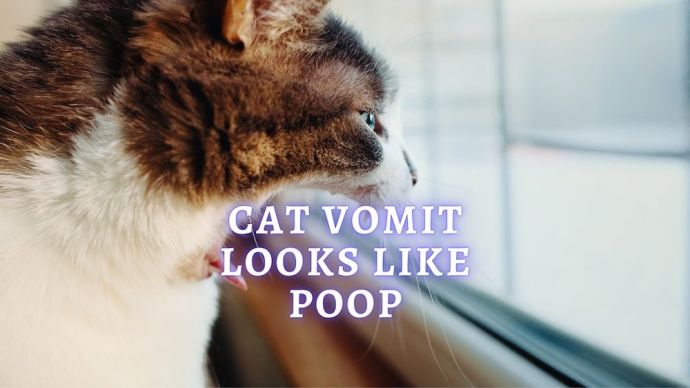 Cat Care Cat Vomit Looks Like Poop: What does your cat’s vomit say about their health?
Cat Care Cat Vomit Looks Like Poop: What does your cat’s vomit say about their health? - 3548
- 0
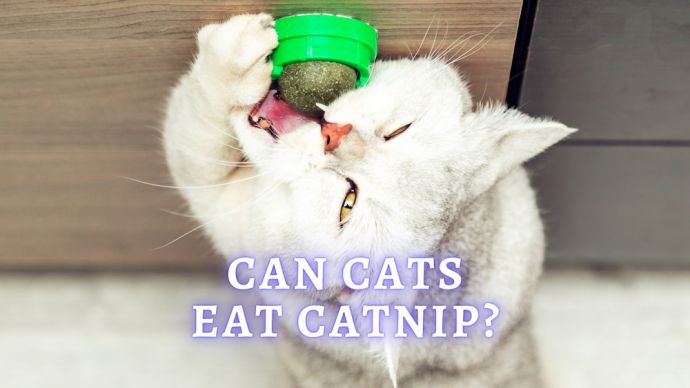 Cat Care Can Cats Eat Catnip? Are There Any Health Benefits to Cats Eating Catnip?
Cat Care Can Cats Eat Catnip? Are There Any Health Benefits to Cats Eating Catnip? - 97
- 0
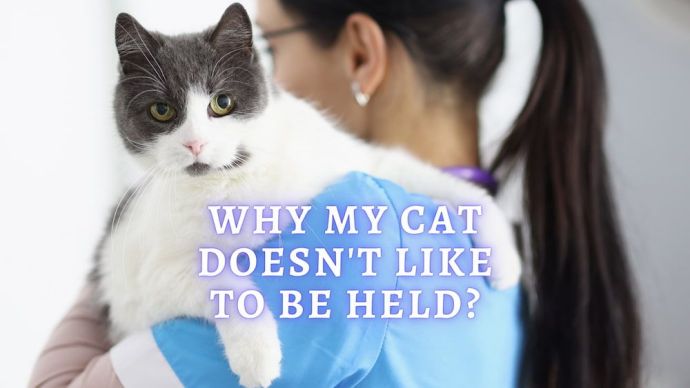 Cat Care Why Doesn’t My Cat Like to be Held? 8 Reasons Why And How to Change It
Cat Care Why Doesn’t My Cat Like to be Held? 8 Reasons Why And How to Change It - 3903
- 2
 Cat Care Why Does My Cat Attack My Legs? 10 Reasons Why and What To Do About It (Vet-Approved Advice)
Cat Care Why Does My Cat Attack My Legs? 10 Reasons Why and What To Do About It (Vet-Approved Advice) - 46013
- 21
 Cat Veterinary Tips Cat Stomach Gurgling: Vet Advice on Why is Your Cat Stomach Gurgling?
Cat Veterinary Tips Cat Stomach Gurgling: Vet Advice on Why is Your Cat Stomach Gurgling? - 36469
- 4
 Cat Veterinary Tips My Cat Lost its Voice: Can Cats get Laryngitis? (Vet Advice)
Cat Veterinary Tips My Cat Lost its Voice: Can Cats get Laryngitis? (Vet Advice) - 23554
- 13









